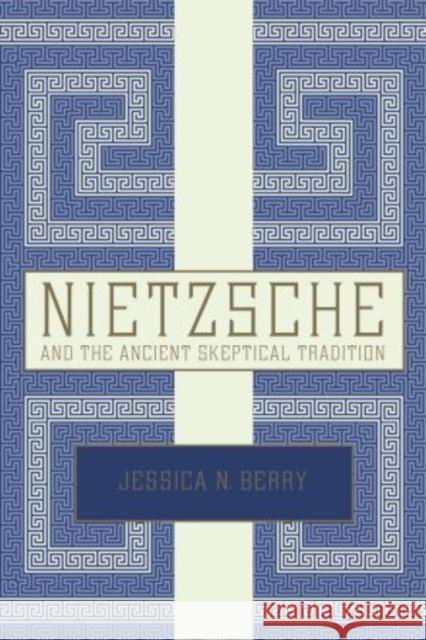Nietzsche and the Ancient Skeptical Tradition » książka
Nietzsche and the Ancient Skeptical Tradition
ISBN-13: 9780195368420 / Angielski / Twarda / 2010 / 248 str.
Nietzsche and the Ancient Skeptical Tradition
ISBN-13: 9780195368420 / Angielski / Twarda / 2010 / 248 str.
(netto: 490,11 VAT: 5%)
Najniższa cena z 30 dni: 469,21
ok. 16-18 dni roboczych.
Darmowa dostawa!
The impact of Nietzsche's engagement with the Greek skeptics has never before been systematically explored in a book-length work - an inattention that belies the interpretive weight scholars otherwise attribute to his early career as a professor of classical philology and to the fascination with Greek literature and culture that persisted throughout his productive academic life. Jessica N. Berry fills this gap in the literature on Nietzsche by demonstrating how an understanding of the Pyrrhonian skeptical tradition illuminates Nietzsche's own reflections on truth, knowledge, and ultimately, the nature and value of philosophic inquiry. This entirely new reading of Nietzsche's epistemological and ethical views promises to make clear and render coherent his provocative but often opaque remarks on the topics of truth and knowledge and to grant us further insight into his ethics-since the Greek skeptics, like Nietzsche, take up the position they do as a means of promoting well-being and psychological health. In addition, it allows us to recover a portrait of Nietzsche as a philologist and philosophical psychologist that has been too often obscured by commentaries on his thought.
"The book addresses a number of central issues in Nietzsche's philosophy, including perspectivism and his conception of truth. The idea that his views in these areas owe much to the ancient Pyrrhonists casts them in an important new light, and is well supported by the texts. A lot of people from a lot of different areas in philosophy will have good reason to take notice." - Richard Bett, Johns Hopkins University










